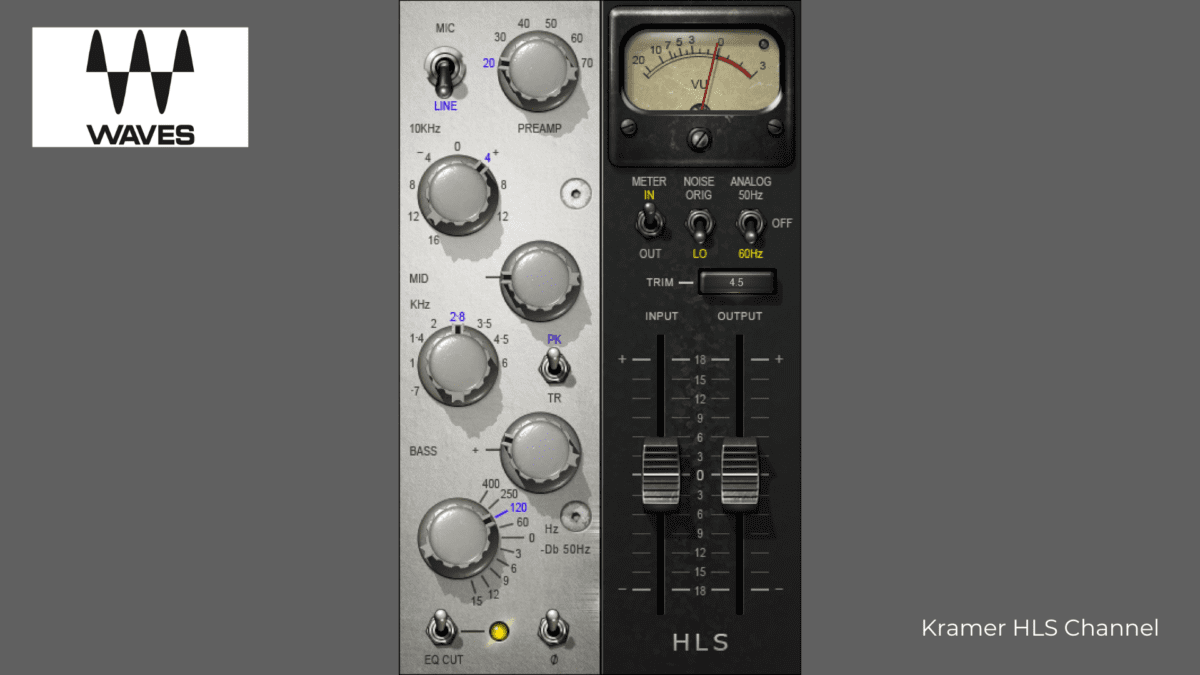Mastering and a mastering engineer are terms that get mentioned a lot in the recording process – but it’s often the kind of thing artists know they need but don’t necessarily know exactly what it is.

In this article we’ll cover what is mastering, the mastering engineer job description, how to become a mastering engineer, and investigate how much a mastering engineer makes.
What Is Mastering?

Mastering is a process that happens once all the tracks of a record have been recorded and mixed. It’s sometimes described as making the record louder and that is a part of it but it’s more a case of making the final mix (or mixes) sonically cohesive and ready for broadcast (on radio/TV/etc) and for the manufacturer of CDs and Vinyl (both formats require a slightly different master).
What Is A Mastering Engineer?

A mastering engineer is the person who is in charge of mastering the record. Their job is to take the mixed record from the producer and make those recordings ready for broadcast and manufacture so that they sit alongside other records on the radio and sound as good as they possibly can.
What Does A Mastering Engineer Do?

A mastering engineer’s role is quite technical, but it is also quite creative and the engineer will use their own tastes and sensibilities to create an engaging master. The mainstays of a mastering engineers job are:
Being A Second Set Of Ears
This is often overlooked, but it is actually the mastering engineer’s greatest asset. They are typically the first person to work on a record who wasn’t in the studio when it was recorded – as such they have a totally fresh and clean perspective. The best mastering engineers will often give feedback on mixes and work with the recording engineer/producer to finalise the mix so that when it’s mastered it really sings.
Working With The Dynamics
As mentioned above, a lot of people describe mastering as making the record louder. This is partly the case. A mastering engineer uses different compressors and gains tools to raise the volume of the quieter sections and limit the volume of the louder sections in order to make the whole track more cohesive – the last thing you want is your audience turning the volume up to hear you in the verses but then having it way too loud in the choruses!
The mastering engineer will then apply that process to every song on an album to make sure that the album tracks all sit together nicely.
Whilst this sounds like a relatively easy job, it can become quite technical and requires a lot of skill from the engineer. A mastering engineer constantly needs to monitor the DBS level of his input signal and match that with his output signal because an increase in the signal can trick the brain into thinking the overall sound is better because it is louder and it can make it difficult to make choices for creative reasons.
Adding Effects
In addition to managing the dynamics, the mastering engineer also adds other effects to the full track to achieve a specific sonic impact. This can be using EQ to boost or reduce specific frequencies to make the mix stand together, using multiband compressors that add different compression levels to different frequency bands, adding global effects like reverb, also using compressors for the way they colour the sound, and using effects plugins to change the stereo characteristics of the track.
Again, it can get very technical. Where a mixing engineer might think in terms of the stereo field and placing instruments and voices on the left or the right of the stereo field to varying degrees – a mastering engineer will think more in terms of having 2 channels – the mono or central channel and the stereo or WIDE channel. Some of a mastering engineer’s plugins will allow the engineer to affect the stereo field in a different manner to how they affect the mono channel which again affects the feel of how the total balance hangs together.
Sorting The Timings
The mastering engineer is also responsible for the start and endpoints of each track on a record and the gap of silence between each track. This might seem like a small thing but a gap that is too long or too short can really impact the flow of an album.
Furthermore, this has a material impact when you are having your record manufactured – especially if you are working with vinyl because a 12” vinyl record can only support up to 22 minutes on each side before you start to lose quality, so the mastering engineer needs to ensure that the content can be nicely lined up on the vinyl without compromising the sound quality, or if the run time does exceed the 22 mins on each side, they need to make sure they are mastering the record accordingly or recommending a spread onto multiple discs.
Facilitating Manufacture, Distribution & Final Volume Level
Mastering is very relevant when you come to distributing or manufacturing your record. For example, Digital Service Platforms like Spotify and Apple Music all have preferred volume settings for releases (-14 dBs LUFS for Spotify, -16 dBs LUFS for Apple Music, etc.). Most of the DSPs actually also have a setting whereby any records too quiet will be increased in volume and any records too loud will be decreased and a good mastering engineer will be able to provide a single digital master that will not lose quality when this process occurs.
It gets even more technical when you come to manufacturing the record. CDs work better with a louder master and have a more even frequency response, especially around the bass frequencies whereas vinyl needs a quieter master to prevent distortion and the EQ needs to be set differently to achieve a good sound on vinyl.
But that’s not all! Before a record can go to manufacture the mastering engineer also needs to prepare all of the appropriate documentation and assign information to the audio files he has. MP3s of the masters need to have their ID3 tags added (things like copyright information, ISRCs, writers, etc.) and for manufacture, the Mastering Engineer needs to provide a DDP which is a set of documents that outline the specific setup of a CD including run time of each track, the gap between tracks, CD-Text, etc.
If you need to search for an ISRC Code quickly and easily, use the Music Gateway ISRC Finder Tool.
The Mixing & Mastering Engineer
In all professional contexts, mixing and mastering are done by two different people. As I mentioned above, the single greatest attribute the mastering engineer has is their fresh perspective so having them as different people can make all the difference to a track.
However, in a lot of cases (particularly at the earlier stages of a band’s career), the recording engineer responsible for the mixing will also end up doing the mastering. This is typically down to budget – sometimes needs must and as an artist, you have to make the decision as to what is most important for you and your music with the resources you have. The reason behind raising this point is to clarify that in most cases mastering engineers are a separate entity and mastering is its own discipline – so the answer to the question of ‘how to become a mixing and mastering engineer’ is also as per the below:
How To Become A Mastering Engineer

Like a lot of roles in the music industry, there are a number of routes into the world of mastering. You can go down the academic route and get a qualification in sound production or engineering or via the apprenticeship route work your way up the chain at a recording or production studio or you can even strike out on your own and take the DIY self-employed route.
What Qualifications Do You Need To Be A Mastering Engineer?
Whilst you don’t need any qualifications to be a mastering engineer, the role does require extensive experience and knowledge of record production, recording, audio technology and a trained ear that can make creative decisions about recordings. With this in mind, having some level of training can be useful.
You can attend a dedicated mastering engineer school such as Berklee in the US (who has a number of really interesting and relevant courses including a BMus in Music Production and Engineering) or there are a number of further and higher education facilities in the UK (for both sixth form and degree level).
If you’re looking for a shorter mastering engineer course – there are lots online. One I’d recommend is the Mastering Foundations course from plug-in manufacturer Waves who have a really great course on Mastering. (As a side note, purchasing this course also provides a number of free DAW mastering plugins and you get free access to their Mixing Foundations course as well but it also requires that you have at least some basic home studio equipment or access to a studio).
How To Become A Mastering Engineer Without Qualifications
It is absolutely possible to become a mastering engineer without having any qualifications but in the majority of cases, experience and knowledge of music production and recording is required so without any formal qualifications it will be very difficult to get your foot in the door without some experience in a sound production environment. A lot of mastering engineers come from a recording background but there are also some that have experience in live sound production or broadcast.
Audio Mastering Engineer Jobs

Whether you have any specific mastering qualifications or not, there are two main routes to translating your knowledge into a career:
- Work in a lower position at a recording studio or production studio and work your way up.
- Strike out as a self-employed DIY Mastering Engineer and build up your client base as you go.
Of course, a lot of mastering engineers will start with option 1 and then leap to option 2 further into their careers. In most instances, it really pays to have a decent level of experience in an audio production environment in order to properly establish yourself as a mastering engineer. The reason for this is that mastering engineers are highly skilled and even if you are talented, having the experience of working alongside established mastering and recording engineers will enhance your sensibilities and refine your ear which is critical for any mastering engineer.
If you are looking for mastering engineering jobs, they are sometimes advertised on sites such as Reed, Indeed, etc. but more often than not they are found through networking with studios, sometimes working in a freelance capacity and sometimes working in an internship capacity.
How Much Does A Mastering Engineer Make?

When is comes to a mastering engineer’s average salary, it is a very broad church with salaries in the US ranging from $22,000 to $143,000, and in the UK, Glassdoor suggests an estimated average salary of £35,449.
This is also closely tied to the location of the mastering engineer and studio – with mastering engineers in New York having totally different rates than those based in Nashville due to the higher cost of living on the East Coast.
Again, the earning potential of a mastering engineer is much higher the more experience (and the more successful records your work on) so as your career progresses you can expect to earn more as a mastering engineer and get work more easily as word travels.
Now You Know How To Become A Mastering Engineer

Mastering is a critical part of the chain when it comes to making a record sound good enough to sit alongside the best records in the world, so a good mastering engineer is worth their weight in gold.
It’s a dynamic and exciting role being the last person in the chain before a record is released commercially and either sinks or swims with the fans. Those who are best at it tend to have ‘big ears’ – they listen to all sorts of different styles and work in all genres and avoid being pigeonholed within a certain genre.
If the role is of interest, the best thing to do is get some solid experience and potentially some education around audio production – the more you know, the more effective you can be in this kind of job.









